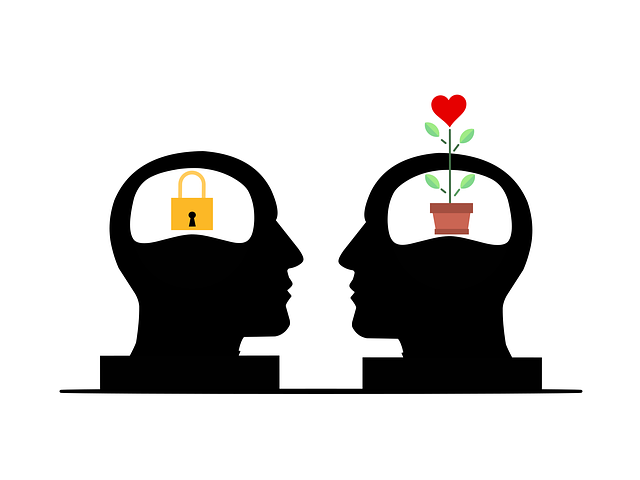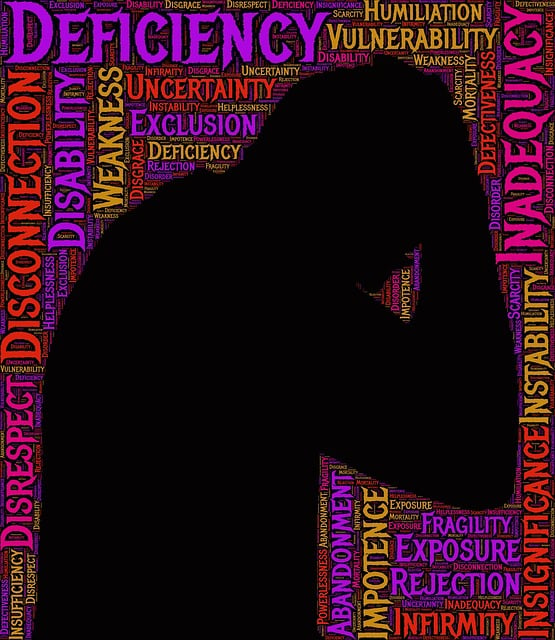Mental wellness is a crucial component of a fulfilling life, impacting daily functioning and overall well-being. In Denver, where relationship issues therapy is prevalent, recognizing mental health's significance fosters personal growth and resilience. Effective tools for managing challenges include mindfulness meditation and self-esteem improvement. Individuals can reduce stigma and encourage supportive communities by openly addressing mental health and adopting self-care practices. Crafting a personalized mental wellness routine involves identifying preferences, such as solitude or social connections. Balanced routines incorporating physical activities, mindfulness, and social interactions support emotional well-being and crisis intervention. Key coping strategies like meditation and relaxation exercises promote calmness and emotional understanding. For healthcare professionals, including those in Denver Relationship Issues Therapy, burnout prevention is vital. Setting realistic goals tailored to personal needs builds resilience through achievable milestones and tracking progress.
“Unwind and embrace a transformative mental wellness self-care routine. In today’s fast-paced world, prioritizing your psychological well-being is paramount for overall health. This comprehensive guide explores the art of cultivating a balanced lifestyle, tailored to your unique needs.
From understanding the profound impact of mental wellness on daily life to uncovering personalized coping strategies, we’ll navigate effective techniques. Discover how physical activities, mindfulness practices, and social connections create a nurturing routine. Learn to set achievable goals, track progress, and build resilience with Denver Relationship Issues Therapy-backed insights.”
- Understanding Mental Wellness and Its Impact on Daily Life
- Identifying Personal Self-Care Needs and Preferences
- Building a Balanced Routine: Physical, Mindful, and Social Activities
- Incorporating Effective Coping Strategies for Stress and Anxiety Relief
- Setting Realistic Goals and Tracking Progress: Cultivating Resilience
Understanding Mental Wellness and Its Impact on Daily Life

Understanding mental wellness is paramount to fostering a healthy and fulfilling life. It encompasses our emotional, psychological, and social well-being, influencing how we think, feel, and act in daily situations. Mental wellness plays a pivotal role in our overall health, impacting our relationships, work performance, and ability to navigate life’s challenges. When mental wellness is compromised, it can manifest as various issues, such as anxiety, depression, or stress, affecting our day-to-day functioning and quality of life. In Denver, where relationship issues therapy has gained prominence, recognizing the importance of mental wellness is a proactive step towards personal growth and resilience.
The impact of poor mental health can be pervasive, impacting not just individuals but also their communities. It may lead to difficulties in maintaining healthy relationships, making decisions, or even engaging in activities once enjoyed. This is where practices like mindfulness meditation and self-esteem improvement techniques become valuable tools for managing and enhancing mental wellness. By addressing underlying issues and promoting self-care, individuals can reduce the stigma surrounding mental illness and foster a supportive environment for open conversations and effective treatment, as encouraged by Denver relationship issues therapy centers.
Identifying Personal Self-Care Needs and Preferences

Identifying Personal Self-Care Needs and Preferences is a crucial first step in developing an effective mental wellness self-care routine. This process involves introspection and being honest with yourself about what brings you joy, relaxation, and healing. It’s not one-size-fits-all; what works for someone else may not be beneficial for you. Consider your unique lifestyle, preferences, and any specific Denver Relationship Issues Therapy needs you may have. Perhaps you thrive in solitude through meditation or journaling, or you find solace in social connections like joining a book club.
Self-Care Routine Development for Better Mental Health should be tailored to these personal preferences. For instance, if spending time outdoors in nature calms your mind, incorporate hiking or gardening into your routine. Conversely, if you’re an introvert who recharges through quiet moments, allocate dedicated time each day for solo activities. Incorporating mental wellness journaling exercises and crisis intervention guidance can also be beneficial, helping you track progress, process emotions, and develop coping strategies tailored to your specific needs.
Building a Balanced Routine: Physical, Mindful, and Social Activities

Developing a balanced self-care routine is an integral part of maintaining good mental health, offering a holistic approach to well-being that encompasses various aspects of daily life. Physical activities, such as regular exercise or even a relaxing walk in nature, play a significant role in boosting mood and reducing stress levels. Engaging in mindful practices like meditation or journaling can enhance self-awareness and promote emotional regulation, which is especially beneficial for those dealing with Denver relationship issues therapy.
Incorporating social interactions into your routine is equally vital. Building connections and fostering healthy relationships contribute to a sense of belonging and support, serving as a crucial component in crisis intervention guidance. Engaging in activities that bring joy and connecting with others can significantly impact mood management and overall mental health. Whether it’s joining a local sports team, attending social gatherings, or participating in community events, these social engagements can be powerful tools in navigating mental health challenges, even when considering broader factors like Mental Health Policy Analysis and Advocacy.
Incorporating Effective Coping Strategies for Stress and Anxiety Relief

Incorporating effective coping strategies is a vital component of cultivating a robust mental wellness self-care routine, especially when navigating Denver Relationship Issues Therapy. Stress and anxiety are common challenges faced by many individuals seeking support for their emotional well-being. Engaging in activities that promote relaxation and stress reduction can significantly impact one’s overall mental health. Techniques such as mindfulness meditation, deep breathing exercises, and progressive muscle relaxation have been scientifically proven to mitigate symptoms of anxiety and foster a sense of calm. These practices allow individuals to gain a deeper understanding of their emotional responses and develop healthier coping mechanisms.
For healthcare professionals, including those specializing in mental health, burnout prevention strategies are essential. Given the demanding nature of their work, incorporating self-care routines that incorporate effective coping strategies is crucial. The Risk Assessment for Mental Health Professionals highlights the importance of maintaining emotional intelligence to navigate complex client scenarios. By integrating activities that reduce stress and enhance resilience, professionals can mitigate the risk of burnout and ensure they provide optimal care to their clients, whether it’s through Denver Relationship Issues Therapy or other specialized services.
Setting Realistic Goals and Tracking Progress: Cultivating Resilience

Setting realistic goals is a cornerstone of cultivating resilience when navigating mental wellness self-care routines. In the context of Denver Relationship Issues Therapy, individuals often seek not just to manage stress but to overcome challenges and enhance their overall mental wellness. A well-structured plan starts with identifying achievable milestones, whether it’s committing to daily meditation for 10 minutes or engaging in regular physical activity. These goals should be tailored to individual needs, considering current circumstances and capacity.
Tracking progress is another vital aspect of this process. By regularly assessing small victories and learning from setbacks, individuals build a deeper understanding of their mental wellness journey. This practice not only fosters resilience but also provides an opportunity to adjust strategies as needed. Tools like journaling, or utilizing apps designed for stress management and trauma support services, can aid in monitoring progress and celebrating achievements along the way, reinforcing positive habits for lasting mental wellness.
Developing a robust mental wellness self-care routine is a transformative journey, one that can significantly enhance overall well-being. By understanding the profound impact of mental health on daily life and identifying personal needs, individuals in Denver seeking relationship issues therapy or beyond can create balanced routines incorporating physical activities, mindfulness, and social connections. Effective coping strategies tailored to individual preferences become powerful tools for managing stress and anxiety. Additionally, setting realistic goals and tracking progress foster resilience, enabling individuals to navigate life’s challenges with newfound strength. Embracing these practices paves the way for a happier, healthier future.














